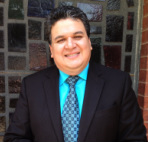The Lord is my light and my salvation;
whom shall I fear?
The Lord is the stronghold of my life;
of whom shall I be afraid?
One thing have I asked of the Lord,
that will I seek after:
that I may dwell in the house of the Lord
all the days of my life,
to gaze upon the beauty of the Lord
and to inquire in his temple.
Psalm 27:1, 4 (ESV).
Henry Francis Lyte was born at Ednam, near Kelso, June 1, 1793, and educated at Portora (the Royal School of Enniskillen), and at Trinity College, Dublin, of which he was a Scholar, and where he graduated in 1814. He became a pastor who labored for twenty-three years in a poor church in a fishing village in Devonshire, England. He had a talent for poetry, and he wrote many poems that became hymns. But he is famous for a particular one: “Abide with Me.”
When he wrote this hymn, he was suffering from tuberculosis and asthma, and eventually he died because of these diseases. In fact, this was the last hymn that he wrote, and the inspiration came from the passage of Jesus walking with two disciples on the road of Emmaus. In this lovely passage, the disciples, not knowing that they were talking with Jesus Himself, asked Him “Abide with us for it is toward evening, and the day is far spent” (Luke 24:29) (KJV).
It was “eventide” for Lyte when he penned these lyrics, and his only consolation was to ask his Lord “Abide with Me.”
Normally the hymnals omit the fourth original verse; let me share it with you.
I fear no foe with you at hand to bless,
though ills have weight, and tears their bitterness.
Where is death's sting? Where, grave, your victory?
I triumph still, if you abide with me.
Lyte was not alone, and we are not alone even in our darkest time. Our Lord is with us, “the help of the helpless,” the one who never changes, our guide and security. He will never leave us nor forsake us.
In His service.
Israel.

 RSS Feed
RSS Feed